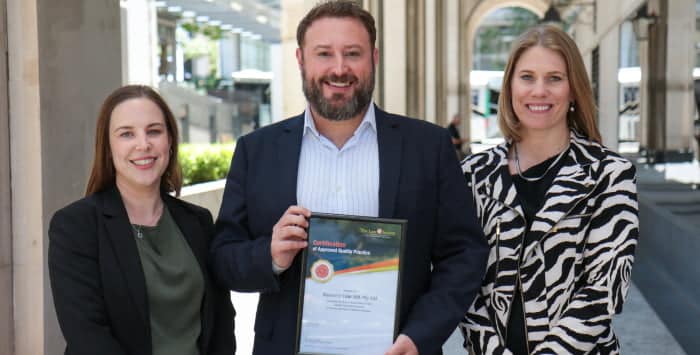Psychosocial risks, the proposed amended FIFO Code and working safely in hot conditions were raised as the frontline workplace health and safety challenges facing WA businesses at CCIWA’s WHS Forum this week.
The discussion included CCIWA Members from the transport, manufacturing, mining, education, energy and construction industries, as well as WHS consultancy Epigroup and the Australian Chamber of Commerce and Industry (ACCI).
READ MORE:
- Getting your head around psychosocial hazards
- Preventing heat-related illness incidents: guidelines for worker safety
Proposed FIFO Code concerns

In July 2024, the Department of Energy, Mines, Industry Regulation and Safety (DEMIRS) released the draft code practice for workplace psychosocial hazards for FIFO resources and construction workers.
The draft, which includes substantial amendments, was the result of findings from the Enough is enough: Sexual harassment against women in the FIFO industry report.
The proposed code of practice has been rewritten to include recommendations from the Enough is enough report, specifically guides on what constitutes sexual and gender harassment, dealing with incidents, definitions for various types of behaviours and reporting expectations.
CCIWA Members expressed concerns around the language of the code, particularly how workers who have experienced adverse health effects from a psychosocial hazard need to be removed from the hazard.
“As soon as you come back to work fatigued, slightly stressed, you work an hour overtime in a week, that introduces a psychosocial hazard,” a Member said.
“The way [the code is] written is we need to remove every single one of people from the workplace and there’s not going to be many people working if that’s the case.
“I don’t think that’s [the regulator’s] intention, but they’ve overgeneralised a lot of these statements which isn’t going to work for a small company and larger companies too.”
Another Member said the proposed changes to roster durations that pose a psychosocial hazard could have significant unintended consequences.
“As a contractor, we are very much dictated at times on what roster we can run depending on the project. Projects may require a 3:1 roster or you’re not considered for the job,” they said.
Submissions on the draft FIFO Code close October 24 at 5pm.
CCIWA will be making a submission on the FIFO Code and welcomes input from Members by emailing [email protected].
Controls for working safely in hot conditions
The WA WHS Commission, through CCIWA, is seeking input from industry on effective controls to address heat conditions.
There are two main aspects of safe work in hot conditions – hydration and core body temperature.
One Member shared an innovative technique they have used to address heat stress for workers (in addition to other existing measures)
“We bought an ice shaver for $300 for a particular site to make slushies. It’s more aimed at heat control but also tackles hydration because we add an electrolyte in it,” they said.
“Just consuming that ice cold drink has really helped reduce the core temperature of workers and it was low cost and easy to implement.”
CCIWA is keen to hear from Members on how they have managed to continue working safely in the heat to help inform our feedback to the WHS Commission. Please email [email protected] if you’d like to contribute.
To find out more about what we stand for, visit our Advocacy page.









